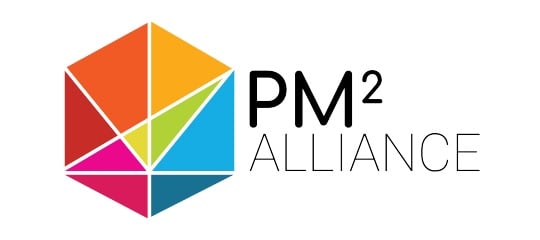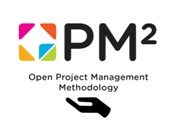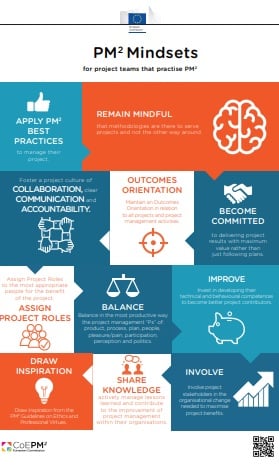
Projects are a means of creating value for stakeholders by producing outputs and outcomes which result in benefits of higher value than the cost of their production. To manage more effectively this value-creation process, project management best practices are applied, often packaged in the form of a methodology.
Many believe that applying a project management methodology simply means following procedures, applying tools & techniques or filling in templates. They are wrong! When project management becomes nothing more than a layer of bureaucracy, it produces the exact opposite of the intended effect.
The Critical Success Factors (CSFs) of effective project management extend beyond methods and tools and include management sponsorship, supporting structures, effective teams, and appropriate culture.
Culture is an important aspect of every organisation and an important consideration for project management. We know very well that “culture eats procedures for breakfast”, so managing the project culture should be an important concern for project management. Therefore, the sociocultural dimension of project management should be actively managed.
What are the Mindsets
Project Management Mindsets are the soul and personality of a Methodology and become the glue that holds together the four Methodology pillars of Governance, Lifecycle, Processes and Artefacts. By crystallising its philosophy, the Mindsets make a Methodology both more effective and complete.
The Mindsets help project teams (re)position their project management priorities in a wider context. By providing a common set of beliefs and values for all project management practitioners, they remind them of the attitudes and behaviours that can help them to navigate productively through the complexities of a project reality.
Mindsets are guidelines for adapting management processes and behaviours to the situation.
One size never fits all, so adapting (or tailoring) a methodology to the needs of an organisation and a project is always recommended. However, while tailoring guidelines can help us adapt different elements of the methodology (its processes, documentation, etc.) to our specific needs, they cannot help us adapt our attitudes, behaviours and actions in order to remain productive and value-focused in a given situation.
This is where the Mindsets come into play: they help us align our judgement, interpret the situation correctly, and chose the right behaviours and actions. What’s more, they allow us to do this consistently and both as individuals and as teams.
By helping us interpret the spirit of the methodology, the methodology Mindsets help us understand what is really important—and less so–in a given context.
For instance, this is where the PM² mindset “Remain mindful that the methodologies are there to serve projects and not the other way around” comes in—it is there to remind us that we can get lost in the motions of project management, that we can focus so much on doing things right that we forget to ask ourselves if we are also doing the right things, at the right time, to the right extent or level of rigour. Put another way, it is there to remind us that efficiency only makes sense in the context of effectiveness.
But remember that, like all elements of a methodology, the Mindsets should be considered as parts of an integrated whole, not as standalone or disconnected parts.

The Agile Manifesto has been a source of inspiration for PM², and for the Mindsets in particular. PM² is in many ways “agile ready” in spirit, and in the way, it acknowledges and integrates agile practices into the PM² lifecycle (see also Agile PM²).
Appling the PM² Mindsets
Mindsets should not (and cannot) be as prescriptive as processes. Mindsets are there to provide a compass, not a map–an ethical and behavioural compass that helps us make the difficult decisions (related to complex situations – there are already plenty of tools and techniques out there to help us make complicated decisions).
The PM² Mindsets can be a powerful reference for project managers who must manage projects and teams with limited formal authority.
The Mindsets can provide the starting point of putting together a Project Team Charter – an internal agreement on conduct and a team “contract” on how to “behave” within a team. Such a Team Charter reminds team members (especially self organising teams) of the commitment they have all made upfront to enhance team performance. It can, therefore, be used to highlight unproductive behaviours and, hopefully, to provide a basis for intervening in order to realign them.
- This article is based on: PM² Mindsets: Key Success Factors of your project. An interview with Nicos Kourounakis. Thanks @JuliánGómez!
- Watch a video about the PM² Mindsets (Open PM² Conference, 2018).
- Original Article (LinkedIn Article)

About the PM² Alliance
The PM²Alliance is an international, not-for-profit organisation founded by PM² practitioners. It brings together individuals from institutions, companies and academia to inspire dialogue, share resources, and address the field’s challenges while promoting the wider adoption of the PM² Methodology for the advancement of Project Management Europe and for the public benefit.
The PM² Alliance plays a crucial role in enabling the sharing of knowledge and experiences and fostering an appreciation of PM² as a common, open and free methodology for Europe – and beyond. Through its network of affiliated corporate and individual members, it makes possible to conduct European wide communication and dissemination activities and events.

About the PM² Methodology
PM² is a Project Management Methodology developed and supported by the European Commission. Its purpose is to enable project teams to manage their projects effectively and deliver solutions and benefits to their organisations, partners and stakeholders.
PM² is lean and easy-to-use, but also it is open-source and free; It incorporates elements from a wide range of globally accepted project management and agile best practices, standards and methodologies and captures the experience the EU has gained from managing thousands of projects, organisational change initiatives, EU Programmes and Grants.
PM² provides a Project Governance Model (i.e. roles & responsibilities), a Project Lifecycle (i.e. project phases), a set of Processes (i.e. project management activities), a set of Project Templates (and guidelines for documentation), a set of Mindsets (i.e. effective attitudes and behaviours).
- Read more about PM²
- Download the free PM² Guide






